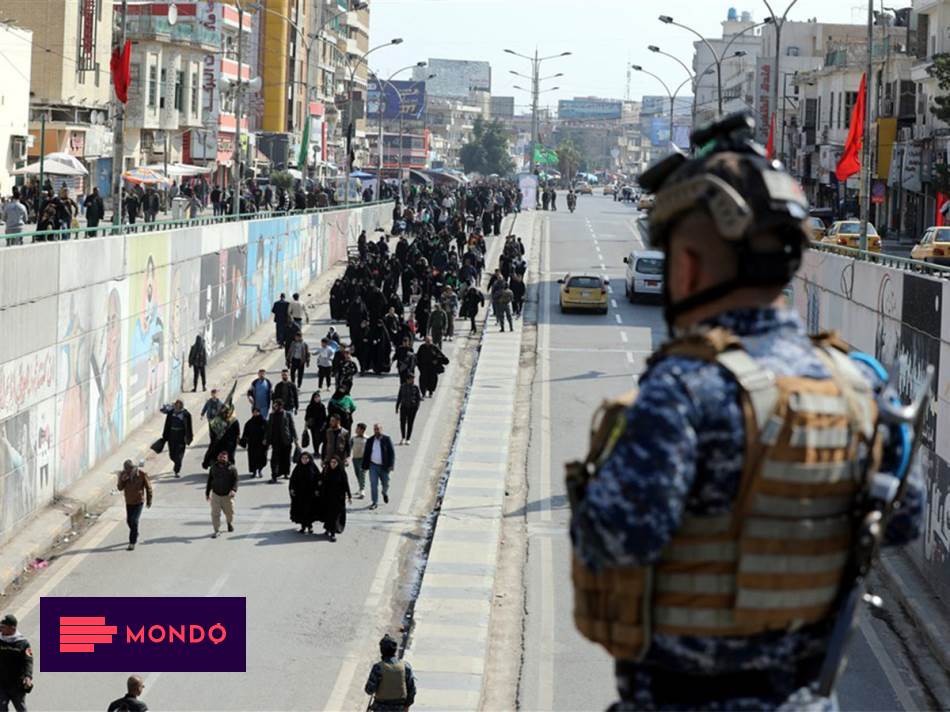Twenty years after the US-led invasion of Iraq toppled Saddam Hussein, the oil-rich country remains deeply affected by the conflict. Although it is closer to the USA, it is far from the liberal democracy that Washington envisioned.
George W. Bush’s war, launched after the 9/11 attacks, is remembered for the shock and awe of the attacks, the toppling of a giant statue of Saddam, and the years of bloody sectarian turmoil that followed.
The decision after the March 20, 2003 ground invasion to dismantle the Iraqi state, party and military apparatus deepened the chaos that fueled years of bloodshed, from which the jihadist group Islamic State later emerged.
American forces, supported mostly by British troops, never found the weapons of mass destruction that justified war, and eventually left Iraq, free of dictators but plagued by instability and also under the influence of Washington’s archenemy, Iran.
“The US simply didn’t understand the nature of Iraqi society, the nature of the regime they were overthrowing,” said Samuel Helfont, assistant professor of strategy at the Naval Postgraduate School in California.
Bush, whose father went to war with Iraq in 1990-91. after Saddam’s attack on Kuwait, he said he wanted to impose “liberal democracy,” but that effort disappeared even after Saddam was toppled, Helfont said.
“Building democracy takes time, it doesn’t create utopia overnight,” said Hamzeh Hadad, visiting fellow at the European Council on Foreign Relations.
Instead of revealing nuclear, biological or chemical weapons, the attack by the US-led international coalition opened a Pandora’s box, traumatizing Iraqis and alienating some traditional US allies.
Major violence erupted again in Iraq after the February 2006 deadly bombing of a Shiite Muslim shrine in Samarra, north of Baghdad, sparking a two-year civil war.
By the time the US withdrew under Barack Obama in 2011, more than 100,000 Iraqi civilians had been killed, according to the Iraq Body Count group. The United States claimed nearly 4,500 dead on its side.
Chaos and corruption
Even more horrors befell Iraq when the IS group declared its “caliphate” and seized nearly a third of the country in 2014. It was a savage reign that ended in Iraq only in 2017 after a grueling military campaign.
Today, about 2,500 US forces are stationed in Iraq. Not in an occupying, but in an advisory, non-combat role in the international coalition against IS, whose remaining cells continue to launch sporadic bombings and other attacks.
Years of violence have profoundly changed society in Iraq, which has long been home to a diverse mix of ethnic and religious groups. The minority Yezidis were targeted in what the UN called a genocidal campaign, and much of the once vibrant Christian community was driven out.
Tensions also simmer between the federal government in Baghdad and the autonomous Kurdish authorities in northern Iraq, particularly over oil exports.
In October 2019, young Iraqis led a nationwide protest movement that grew out of frustration over mismanagement, endemic corruption and Iranian interference. As a result, a bloody showdown broke out that left hundreds dead.
Despite Iraq’s vast oil and gas reserves, about one-third of the population of 42 million lives in poverty, while about 35 percent of the youth are unemployed, the UN says.
Politics remain chaotic, and parliament took a year marred by post-election infighting before swearing in a new government last October.
Prime Minister Mohamed Shia al-Sudani has vowed to fight corruption in Iraq, which ranks at the bottom of Transparency International’s corruption index, at 157 out of 180 countries.
“Any Iraqi can tell you that corruption started to thrive in the 1990s when Iraq was under international sanctions,” Haddad said, adding that corruption is now more in focus “because Iraq is open to the world.”
Iraq is plagued by other challenges, from devastated infrastructure and daily power outages to water shortages and the ravages of climate change.
And yet, Haddad says that today’s Iraq is a “democratized state” that needs time to mature because “democracy is uneven.”
Iran is gaining influence
A major unintended consequence of the US invasion was the massive increase in influence that its archenemy Iran now has in Iraq.
Iran and Iraq fought a protracted war in the 1980s, but the neighbors also have close cultural and religious ties as majority Shia countries.
Iraq has become a key economic lifeline for the Islamic republic as it is hit by sanctions over its disputed nuclear program, while Iran supplies Iraq with gas and electricity as well as consumer goods.
Politically, Iraq’s Shiite parties, freed from the yoke of Sunni dictator Saddam, have become “the most powerful players,” says Hamdi Malik, a fellow at the Washington Institute.
Iran-backed groups have managed to maintain some “cohesion” despite the clashes since the last election, he said, adding that “Iran plays a key role” in ensuring that cohesion lasts.
“In contrast, Iraq’s minority Kurds and Sunnis are not strong players, mainly because they suffer from serious internal divisions,” Malik said.
Pro-Iranian parties dominate Iraq’s parliament, and more than 150,000 fighters from the former Iran-backed Hashid al-Shaabi paramilitary force have been integrated into the country’s army.
Baghdad must now manage relations with both Washington and Tehran, said a Western diplomat in Iraq who spoke on condition of anonymity.
“It is trying to balance its relations with Iran, its Sunni neighbors and the West,” and that is a very delicate exercise, he concluded.
